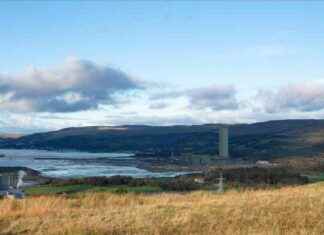Scotland’s Ability to Host Major Events: Oasis and the Fringe
When Noel Gallagher sang about leaving a city that “don’t smell too pretty,” he may have been referring to his hometown of Manchester, but the focus has shifted to Edinburgh as the stage is set for Oasis to reunite and perform at Murrayfield next summer. The prospect of hosting such a monumental event alongside the annual Fringe festival raises questions about Scotland’s ability to handle the influx of visitors and logistical challenges.
Public transportation, particularly ScotRail, has been a point of contention in recent years. The reduced timetable due to industrial action by ASLEF has raised concerns about late-night services, with instances like the lack of trains to and from Glasgow following the final night of TRNSMT Festival. While extra services were provided for Taylor Swift’s concert at Murrayfield, the limited availability and early departure times have left many attendees stranded or facing exorbitant prices for alternative transportation.
The simultaneous hosting of Oasis and the Fringe presents a unique challenge for Edinburgh, as hotels capitalize on the high demand by increasing prices to staggering levels. Reports of rooms being cancelled and re-listed at inflated rates highlight the strain on accommodation options, with some establishments charging upwards of £800 per night near Murrayfield. This trend of price gouging threatens to alienate visitors and locals alike, casting a shadow over the economic benefits of hosting major events.
The Impact of Major Events on Scotland’s Economy
The tourism sector plays a significant role in Scotland’s economy, accounting for approximately 7% of employment nationwide. Large events like the Fringe and concerts by iconic bands such as Oasis provide a crucial boost to local businesses and the high street. The success of Taylor Swift’s Eras Tour, estimated to have contributed around £100 million to the Scottish economy, underscores the financial benefits of attracting renowned artists to the country.
While the economic advantages are evident, the strain on infrastructure and resources caused by massive events cannot be ignored. Edinburgh’s decision to implement a tourist tax in 2026 reflects the need to address the negative impacts of tourism, such as rising prices and overcrowding. Additionally, regulations on short-term rental properties like Airbnb aim to curb the effects of excessive tourism on local residents and affordability.
The Challenges of Infrastructure and Public Services
As Scotland strives to accommodate large-scale events like Oasis’s concert at Murrayfield, questions arise about the adequacy of its infrastructure and public services. The disparity between transportation systems in Edinburgh and other European cities is stark, with limited options for late-night travel and fragmented ticketing schemes. The contrast with Budapest, where festivalgoers can access an affordable 24-hour travel ticket for various modes of transportation, raises concerns about Scotland’s commitment to efficient and accessible public services.
Despite Scotland’s nominal GDP of $228 billion, the country faces challenges in delivering comprehensive infrastructure and services comparable to its European counterparts. The government’s track record on infrastructure projects, such as the delayed Cal Mac ferries and dualling of the A9, has been marred by setbacks and inefficiencies. While initiatives like the nationalisation of ScotRail have been lauded, issues like high ticket prices and limited service options persist, hindering the overall accessibility of public transportation.
The Role of Government and Public Spending
The Scottish Government’s approach to infrastructure development and public services is a critical factor in addressing the challenges posed by hosting major events like Oasis and the Fringe. The need for strategic investments in transportation, housing, and cultural initiatives is paramount to ensuring the success and sustainability of such events. As Scotland navigates the complexities of public spending and economic priorities, the role of government in fostering a supportive environment for tourism and creative industries becomes increasingly crucial.
The irony of hosting international megastars while facing cuts to creative funding and housing shortages underscores the need for a comprehensive approach to economic development and cultural sustainability. The potential impact of further public spending cuts, as hinted by Keir Starmer, raises concerns about the future of Scotland’s ability to host major events and support its creative industries. As the country grapples with these challenges, a concerted effort to prioritize infrastructure, accessibility, and investment in local communities is essential to ensuring a vibrant and sustainable cultural landscape.
In Conclusion
Scotland’s capacity to host major events like Oasis and the Fringe hinges on its ability to address the logistical, infrastructural, and economic challenges that accompany such endeavors. While the economic benefits of attracting visitors and boosting local businesses are undeniable, the strain on public services, accommodation options, and transportation infrastructure requires a strategic and comprehensive approach. By prioritizing investment in infrastructure, sustainable tourism practices, and support for creative industries, Scotland can enhance its reputation as a premier destination for cultural events and entertainment. As the country navigates the complexities of hosting international artists and managing the impacts of tourism, a collaborative effort between government, businesses, and communities is essential to ensuring a successful and sustainable future for Scotland’s cultural landscape.
































